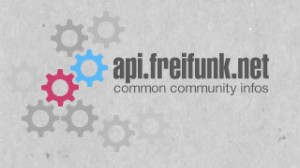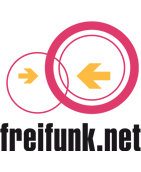 An API (application programming interface) is a set of protocols, routines and tools that specifies how software connects to other software. Through these ports, information can be provided from one software component to another.
An API (application programming interface) is a set of protocols, routines and tools that specifies how software connects to other software. Through these ports, information can be provided from one software component to another.
Recently, we have set the course for the further development of our free radio API. So now it is really easy to create a Freifunk map or a list of all Freifunk initiatives in Germany, for example.
We first demerged previous repositories, that already had developed a quite wildly. Thanks to @ratopi, who has taken over this task. The new sectioning in different repositories for core components is as follows:
- api.freifunk.net: contains the heart of the API, namely the specification and the generator and we may later add documentation.
- directory.api.freifunk.net: this is from now on the directory, the only real central component of the API
- common.api.freifunk.net: this repository contains software that is both needed and used by all other modules. For example the collector or updater of the number of nodes.
So far the applications are structured as follows:
- cmap.api.freifunk.net: the Communitymap, which is generated and maintained from the API data on freifunk.net.
- feed.api.freifunk.net: this application supplies the feeds specified by API of each community viewer.
- viewer.api.freifunk.net: the newest addition to the API family is the viewer, which clearly presents the API data in a clearly layouted table.
We will be happy to add new repositories for new applications and ideas. Our goal is to develop stand applications, so we can publish versions independently and coordinate commit-messages. We want to make it easier for new developers to find their way around, and not get lost in a jungle of files and directories.
The next release of the API specs is now on its way.We have started with development and and are completing pending tickets. Progress is already installed in the generator under http://freifunk.net/api-generator.
You can find important information such as the founding date (maybe also the date of the reestablishment) and other important milestones of communities in the section ‚timeline‘. For the historically minded among us, you can find some really interesting information.
We converted the events, so they now contain a URL to an exported calendar. The possibility of different node maps and visualizations as links is also brand new. Further adjustments will follow by and by.
Here you can find a step-by-step manual, how to generate the API file for your local community.
If you have new ideas for the API or would like to contribute something and/or need assistance, you can contact Andi on our Webteam. If you have general questions about the API or otherwise want to help, just contact us!
This post is also available in: German
